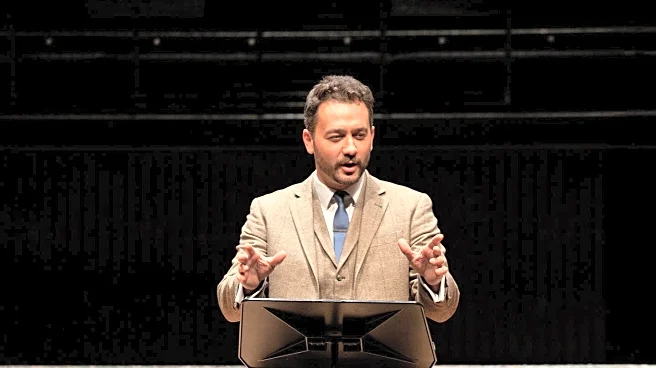What's Happening?
The Israeli military announced the resumption of a ceasefire in Gaza following a series of airstrikes that resulted in the deaths of at least 81 individuals, including women and children. These strikes,
the deadliest since the ceasefire began on October 10, were ordered by Israeli Prime Minister Benjamin Netanyahu in response to alleged ceasefire violations by Hamas. The strikes targeted what Israel described as 'terrorist command positions' within Gaza. Hamas, however, denied involvement in the incident that led to the strikes, which involved the killing of an Israeli soldier during an exchange of gunfire in Rafah. The situation has led to a significant number of casualties, with hospitals in Gaza struggling to cope with the influx of injured and deceased individuals.
Why It's Important?
The escalation in violence poses a significant threat to the fragile ceasefire agreement between Israel and Hamas, impacting regional stability and humanitarian conditions in Gaza. The strikes have resulted in a high civilian death toll, including children, which could exacerbate tensions and lead to further international scrutiny and diplomatic pressure on Israel. The U.S. President, Donald Trump, has defended Israel's actions, citing self-defense, which may influence U.S. foreign policy and its role in Middle Eastern peace negotiations. The humanitarian impact is severe, with hospitals overwhelmed and the civilian population facing increased hardship.
What's Next?
The continuation of the ceasefire remains uncertain as both sides accuse each other of violations. International mediators may be called upon to reinforce the ceasefire and prevent further escalation. The Israeli military has stated its intention to uphold the ceasefire but will respond to any violations, indicating potential for future military actions. The humanitarian situation in Gaza is likely to deteriorate further, necessitating increased international aid and intervention to support the affected civilian population.
Beyond the Headlines
The recent violence highlights the ongoing challenges in achieving lasting peace in the region. The ethical implications of civilian casualties and the use of military force in densely populated areas raise questions about international humanitarian law and the protection of non-combatants. Long-term peace efforts may be hindered by the cycle of retaliation and mistrust between the parties involved.









